AdLibbing Articles
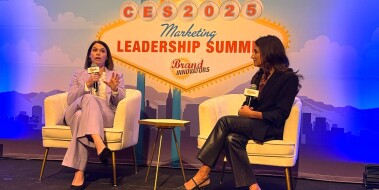
Innovation and Urgency: CES 2025 in the Shadow of the California Wildfires
As I reflect on my experience at CES, I know that this year is one I’ll never forget.The groundbreaking technology I encountered and the inspiring conversations I had were all taking place while the devastating wildfires swept through Los Angeles, in my home state of California. At the time I’m writing this, the fires remain uncontained, destroying over 57,000 structures and forcing the evacuation of more than 153,000 residents. Needless to say, this cast a somber undertone over CES–many attendees, including several of my colleagues, were personally impacted and had to fly out to support their families.
January 13, 2025

Join Us for Advertising Week New York 2024
Get ready for Advertising Week New York, where the brightest minds in the industry come together to push boundaries and explore the future of marketing, media and tech. This year, we’re proud to participate in two dynamic panels that highlight the power of creative storytelling and how we’re shifting perceptions around the most critical issues of our time.
September 26, 2024
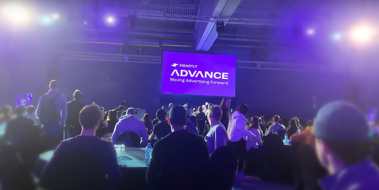
Advertising for Good: Shaping the Future of Mental Health at Smartly Advance
At the Ad Council, the phrase “advertising for good” isn’t just a tagline—it’s the core of everything we do. This concept resonates deeply across our industry, and we’re fortunate to collaborate with some of the most innovative platforms that share our commitment to leveraging advertising for positive change. To bring this topic to life, Ad Council’s President and CEO, Lisa Sherman, and Smartly CEO, Laura Desmond, will lead a panel called, “Advertising for Good” at Smartly Advance.
September 5, 2024

Cannes Lions 2024: A Week of Inspiration, Learning and Connections
My first experience at the Cannes Lions International Festival of Creativity was nothing short of transformative. Imagine the energy of a music festival combined with the intellectual stimulation of an academic conference, all set against the backdrop of the stunning French Riviera. Major agencies, brands, tech and social media companies build pop-up activations along the beach—creating an atmosphere buzzing with creativity and innovation.
June 24, 2024

Get in the Game: Engaging Gen Z Gamers through Fan Favorites
Establishing an authentic connection with target audiences can be a game-changer in delivering nuanced critical messages. Together, with our partners, we took this approach in a recent collaboration to reach young adults. By tapping into the existing level of trust in the video gaming community, we were able to create genuine connections and share important mental health resources. Join us for a deep dive as we discuss how Gen Z, a generation deeply immersed in gaming culture, found value in the authenticity of our message and how we engaged them using some unique trusted messengers.
May 23, 2024

From Awareness to Action: Leveraging WebAR for Social Impact
As the vice president of emerging media and technology at the Ad Council, I’m always exploring new and emerging technologies that can help drive impact across our many social cause campaigns. I was eager to explore web-based augmented reality (WebAR) as a way to reach people with our messages and after months of building, we just launched our first WebAR partnership with our long time partners at Feeding America. For those of you unfamiliar with this technology, WebAR enables users to interact with digital graphics superimposed onto their real world environment through a web browser, without the need for a dedicated app. The user gets to this experience through scanning a QR code or tapping through to a website. This accessibility makes WebAR a powerful tool for marketers, enabling a broad audience to seamlessly access the experience across various devices. The immersive nature and gamification of a WebAR experience can boost engagement, making complex messages more resonating and impactful.
May 15, 2024

How the Creator Economy is Driving Social Impact
Last June, in partnership with Whalar, the Ad Council’s Creators for Good team–our premier in-house talent engagement arm–launched an Ambassador Pilot Program to foster deeper connection with multi-hyphenate content creators passionate about social impact.
May 9, 2024
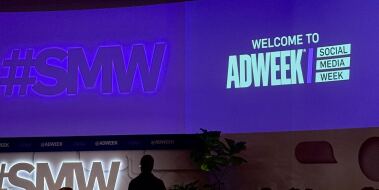
The 7 Most Talked-About Moments from Social Media Week
In the ever-evolving social media landscape, staying ahead of the curve isn't just a goal—it's a necessity. From social media managers leading day-to-day operations to CMOs directing marketing strategy, brands understand that to stay relevant they must make an investment in social. And events like AdWeek’s Social Media Week are crucial for keeping brands at the forefront of industry trends and innovations.
April 18, 2024
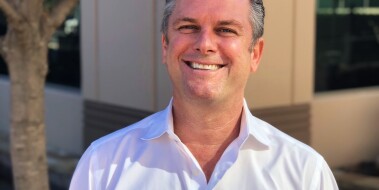
Champion for Good: Mike Durham
Peachjar is a platform that is revolutionizing the way students access community resources and important initiatives. Through their partnership with the Ad Council, Peachjar has extended the reach and impact of campaigns, providing parents and students with valuable information on a variety of topics. We had the opportunity to chat with Peachjar’s CEO and Founder Mike Durham to learn about the importance of accessible student resources, his focus on students’ mental health and emotional-wellbeing, and insights on how to beat a chess master.
April 15, 2024

Gun Violence Is Now a Public Health Crisis
At the Ad Council, we always say we can’t possibly pick a favorite campaign—just like we can’t pick a favorite child. But sometimes an issue just gets inside you. You see that statistic, you see that headline, and your reaction isn’t just intellectual. It’s not even just emotional. It’s visceral. You feel it twisting in your gut. And as a mother, you feel it in your heart.
March 19, 2024

The Impact of Trusted Messengers on Marketing Strategies
In a post-COVID world, the creator economy is a reinvigorated space. Traditionally, messaging around sensitive topics like mental health, public health and gun safety were shared out by health organizations, government agencies or other trusted institutions. Today, influencers play a vital role in sharing important messages and driving meaningful change—reshaping how marketers partner with trusted messengers to address key social issues. Now more than ever, nano to celebrity influencers play a pivotal role in shaping online conversations and creating impact.
March 13, 2024

The Magic of Leading with Purpose: A HOW Conversation about Leadership with Lisa Sherman and Dov Seidman
We are in a time where unprecedented forces are reshaping our world faster than we can adapt our institutions, leadership and even ourselves. In recent years, we have faced challenges on all sides—a global pandemic causing suffering, death and economic destabilization; a reimagined workplace; technological advances that challenge human dignity and autonomy; a war in Ukraine and Israel that has shaken international alliances; and the rise of autocratic leaders across the globe.
February 5, 2024

Tech Trends with a Purpose: Key Takeaways from CES for Marketers and Social Impact Leaders
As the vice president of emerging media & technology at the Ad Council, I always look forward to attending CES, the most influential tech conference in the world—attracting over 3,000 exhibitors and 130,000 attendees, all showcasing breakthrough technologies that will shape our future. I love to learn how technology innovations are not only shaping the marketing industry, but most importantly solving the biggest challenges in our world today. Below are some of my key takeaways from 2024.
January 17, 2024

Stories from Detroit: How JPMorgan Chase Showcased a City’s Remarkable Comeback
“Detroit’s story is one of the greatest comebacks of all time,” says Jamie Dimon, Chairman and CEO of JPMorgan Chase. “Having served the city for more than 90 years, especially after it filed the largest municipal bankruptcy in U.S. history, we’re proud to share the successes and stories of Detroiters who helped make it happen.”
December 4, 2023

Centering Women Veterans in ‘Don’t Wait. Reach Out.’ Campaign
Veterans, whether they've recently left the military or served decades ago, have unique experiences and needs as they adjust to civilian life. They may struggle with challenges related to their service or face common stressors like physical or mental health challenges.
November 20, 2023

A Deep Dive on Our Substance Use and Overdose Crisis Work
In the United States, drug overdose deaths reached nearly 108,000 in 2021, the highest number ever recorded in a 12-month period and a staggering 52% increase compared to two years prior. Over the past 21 years, drug overdoses have claimed more than 932,000 lives. In addition, in 2021, 46.3 million people aged 12 or older in our country had a substance use disorder (SUD). However, less than 10% of these individuals report receiving care or treatment for their substance use.
November 16, 2023

5 Principles to Guide Your 988 Outreach and Messaging Efforts to Key Populations
Warning to the reader: This blog discusses various experiences that you may find yourself identifying with while reading. Should you need emotional or mental health-related support, please contact 988 or a local trusted support.
November 15, 2023

2023 Industry Takeaways from Advertising Week New York
Last week, we participated in Advertising Week New York (AWNY), an annual conference that unites the brightest minds in marketing, advertising, media and technology. The conference presented a remarkable opportunity for us to engage with industry experts and witness our own leaders and Board members address several pressing issues affecting the nation. Join us for a recap of AWNY, where we'll examine the key insights and creative innovations reshaping our industry, including the four pivotal themes that emerged.
October 25, 2023

Where to Find Ad Council During Advertising Week New York 2023
Join us for Advertising Week New York, the premier event for industry leaders to discuss and explore the latest trends, innovations and challenges in marketing, advertising, media and tech. As industry leaders gather, virtually and in-person, we are excited to host three engaging panels and feature our award-winning “Tear the Paper Ceiling” installation. Our experts will join key leaders to discuss harnessing creativity for impact and changing the narrative around substance use disorders.
October 11, 2023

Amazon's Creative Director Uses Music and Tech to Address Youth Mental Health
Go behind-the-scenes with Sara Wald, Creative Director at Amazon, as we delve into our collaboration to develop a powerful new resource focused on supporting the youth. Our interactive experience, "When You Can't Say It, Play It," serves as a tool for parents and caregivers to initiate conversations with teens through music. By leveraging technology to drive impact and connection, Amazon and the Ad Council are actively working to find new ways to address mental health and wellness. Gain insight as Sara shares the inspiration behind the experience, the impact of music on youth mental health, and the need for inclusive marketing.
September 28, 2023

Advancing Healthy Aging Initiatives and Alzheimer's Awareness in Hispanic Communities
In the Hispanic community, distinguishing between the natural process of aging and the early signs of Alzheimer's disease can be difficult to recognize. Healthy aging is a universal goal that transcends cultural boundaries and can take on various forms within different communities.
September 21, 2023

How and Why Mindshare Created an Intentional Media Library
Mindshare operates under a principle of “Good Growth”—a method for creating sustained client growth that goes beyond the focus of a single moment, sale, or platform. That’s because Mindshare believes that media agencies have the power to influence social change and is keen to push intentional media forward. The practice of intentional media investment is about aligning brand values with how brands invest their ad dollars. It is an enhancement to, not a departure from, existing planning processes. Intentional media matters, because moral decisions and business decisions cannot be decoupled. The media and content that brands surround and support with their investment has a real, human impact.
August 16, 2023

Shape the Conversation at SXSW 2024: Vote Today
Each year, Austin, Texas hosts the South by Southwest conference where the convergence of tech, film, music, education, and culture is showcased and celebrated. True to the innovative and collaborative spirit of the conference, SXSW relies on public involvement to help select their lineup using the SXSW Panel Picker. This platform allows you to browse proposals, leave comments and vote for the most important sessions.
August 8, 2023

Roblox: A Vehicle for Social Good
With generative AI and the metaverse at the forefront of emerging media conversations, Roblox cannot be ignored as a frontrunner in the digital experiences space. Having joined the online game platform myself in 2009, it has been fascinating to watch Roblox grow and mature over the years. And now, the platform is at a critical juncture. What started as a relatively small group of game developers and users has exploded into a vibrant community spanning the entire globe.
August 4, 2023

How to Design Life-Saving Health Campaigns with Gen Z in Mind
Gen Z, the generation born between the late 1990s and early 2000s, have revolutionized the way we think about campaigns and campaign engagement. With their inclusive mindset, digital fluency and emphasis on social good, Gen Z has emerged as the most influential demographic across industries.
August 2, 2023

Champion for Good: Kiron Chakraborty
Meet Kiron Chakraborty: the creative lead and director behind the latest round of videos produced in partnership with Upworthy, for our Belonging Begins With Us campaign. His passion for inclusivity and ensuring that diverse voices are heard has helped us produce creative that promotes a deeper sense of belonging throughout our nation.
July 18, 2023

5 Tips to Sharpen Your Crisis Communications Skills
In today’s divisive political landscape, it’s more important than ever to be prepared when it comes to crisis communications. With social media and ever-evolving technology, the demand for crises to be managed effectively and efficiently has only been amplified. Preparing in advance is vital to safeguarding your brand in challenging moments.
July 13, 2023

How to Facilitate a Successful Remote Internship
Internship season is here –and as full-time hybrid and remote roles increasingly become the norm, we are seeing the same for remote internships.
June 22, 2023

Saved by the Scan: How a Lifesaving Quiz Reached 1M Completions
Lung cancer is the leading cause of cancer deaths in the U.S. and has one of the lowest survival rates compared to other major cancers – but early detection through a new, low-dose CT scan provides lifesaving hope. According to the National Cancer Institute, when screening is used to detect lung cancer before it spreads, the likelihood of surviving five years or more improves to over 60%. However, although 14.2 million Americans are eligible, less than 6% of those at high risk for lung cancer have been screened. *
June 15, 2023

Where We’ll Be at Cannes Lions 2023
From transforming hiring to mental health, we are proud to be taking part in conversations about some of the most important topics at Cannes Lions this year. Read below to learn more on where you’ll find us. We hope to see you there!
June 7, 2023

How to Center Accessibility and Inclusion in UX/UI Design
According to the CDC, 26% of people in the United States are currently living with a disability. And as of 2021, 95% of Americans utilize the Internet. What this data tells us is that if your organization is hosting content online, your audience includes those living with disabilities. In 2023, creating content that is accessible is a necessity—but creating accessible content benefits everyone, not just those living with disabilities.
May 18, 2023

Shades of Green: What Marketers Need to Know About Modern Greenwashing
I remember when I heard the term “green” for the first time. As a consumer, I felt empowered. I was motivated to support companies that prioritized people and planet – not just profit. As a marketer, I saw this as a breakthrough opportunity to reach new consumers and shift behaviors toward more sustainable options.
April 28, 2023

Community Leaders Share Tips to Meet the Moment
Each year, at our Annual Public Service Award Dinner, the Ad Council celebrates the leaders and organizations that make our social impact campaigns possible. The Annual Dinner is an opportunity to showcase not only the campaigns moving the needle on today’s most pressing issues, but the dedicated community heroes who bring those efforts to life daily.
April 10, 2023

Five Trending Topics We Saw at SXSW 2023
Last week, I flew to Austin, Texas to attend South by Southwest, which brings together innovators in media, tech and entertainment. I was excited to see my Ad Council colleagues speak about the power of partnerships for our Seize the Awkward campaign at the SHE Media Future of Health Co-Lab and host a panel on the power of championing skills-based hiring to revolutionize and diversify the workforce. And with over 25 tracks of programming, SXSW 2023 was a fascinating place to get insights on everything from GPT-4 to ethical AI and accessibility in tech. Here are the top five topics that fascinated me at this year’s festival.
March 23, 2023

Prioritizing Mental Health Conversations in the Workplace
According to a recent Ad Council study, 95% of employees take time off due to mental health issues but cite another reason.
March 17, 2023
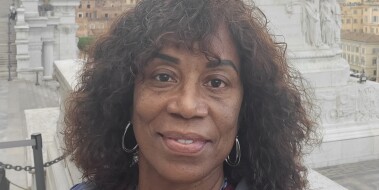
Champion for Good: Denise Lee
Denise Lee is a volunteer spokesperson for the American Lung Association (ALA) and a lung cancer survivor. Denise recently worked with us as a spokesperson on our Lung Cancer Screening campaign. Ahead of World Cancer Day, we had the opportunity to chat with Denise about her experience as a survivor and advocate. She also shared her advice for those looking to spread awareness about issues they care about.
February 3, 2023

How You Can Tear Down the "Paper Ceiling" and Uncover New Talent
STARs are all around us, the more than 70 million workers in the U.S. who are “skilled through alternative routes” (STARs), rather than via college degrees, and they make up 50% of the U.S. workforce.
January 25, 2023

CES 2023: Where Technology Met Social Impact
With over 3,000 exhibitors and 115,000 attendees, CES is the most influential tech conference in the world, showcasing breakthrough technologies that will shape our future. I’ve spent most of my career at the Ad Council, building relationships with social media companies to develop and scale impactful and innovative partnerships. Since June, I’m leading a new center of excellence focused on emerging media and technology. Given this new focus, I was eager to learn about future technology shaping how we consume media and drive impact. Here are my top highlights from CES 2023.
January 18, 2023

How to Prepare for a Panel Discussion
You did it! Your countless hours of what may often feel like unnoticed hard work have led to you being invited to share your insights with an audience as a subject matter expert. While opportunities to share your expertise are both exciting and reassuring, we know that understanding how to prepare for a panel discussion can be quite daunting.
January 10, 2023

Best Practices for Agile UX Research
In the past five years, the Ad Council’s digital team has conducted more than 250 studies for a wide range of campaigns with our partner Feedback Loop. These studies have complimented our other methods of research: focus groups, moderated UX research and communications checks, to name a few.
December 14, 2022

Four Ways to Use Influencers to Move People from Awareness to Action
Who do Americans turn to as messengers of real, unbiased, trustworthy information around today’s most pressing social issues—particularly in a time when concerns around misinformation and fake news are at an all-time high?
December 12, 2022

Champion for Good: Adama Kamara
Creative Theory Agency’s Adama Kamara served as the lead strategist for the latest round of creative from our Emergency Preparedness campaign, which is designed to reach Black communities that are often disproportionately impacted by natural disasters.
December 9, 2022

A Deep Dive Into Our New Mental Health Initiative
According to a recent Ad Council study, 49% of Americans 16 to 65 years old say they have a mental health condition, and of that group, only 48% are getting help or treatment. As the importance of prioritizing mental health for all increases, so does the need for leaders in the industry to use the power of communications to provide communities with the tools they need.
November 18, 2022

Champion for Good: Bradley Hunter
During his nearly fifteen years in the advertising industry, TikTok’s Bradley Hunter has worked in a myriad of roles from partnerships to sales to project management, and he has done so in roles at publishers, ad networks, ad tech companies and platforms. While at Google, he led industry partnerships with leading organizations, focused on driving impact in brand safety, measurement, DEI and advertising for social impact. He says it was his passion for engaging in these critical industry topics that led him to his current role as TikTok’s global head of brand safety and industry relations.
November 18, 2022

How and Why NBCUniversal Launched Its Creative Impact Lab
Among the greatest needs nonprofits have today are the tools to tell their story. There are nearly two million 501C3 organizations in the U.S. alone—all yearning for increased attention around their important causes. Unfortunately, most nonprofits too often lack the resources and expertise to effectively illustrate their positive impact—as well as access to diverse storytellers with the lived experience to tell their stories authentically.
November 2, 2022

Driving Young Voter Turnout in the 2022 Midterm Elections
Young voters now make up a third of the electorate, and their voting power will only continue to grow as more Gen Zers come of voting age. But more important than eligibility is the question of turnout: Will this vocal generation head to the polls for the midterms this November?
October 27, 2022

How to Incorporate Your Audience as Storytellers
As communicators, forming an authentic connection with your intended audience is a total touchdown. So, if we want so badly for audiences to feel seen and heard, why not give them a direct line into the storytelling process?
October 20, 2022

Where You’ll Find Us at Advertising Week New York 2022
From October 17 to 20, Advertising Week New York returns with in-person panels and special events, and the Ad Council will be exploring topics like the importance of diversity, equity and inclusion efforts in fostering brand growth, the power of partnership in tackling the drug overdose crisis, and the impact of trusted voices in social good campaigns.
October 7, 2022
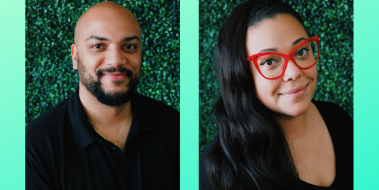
Champions for Good: Raphael and Dawn Rigaud
Raphael and Dawn Rigaud are co-founders of Rigaud Global Company (RGC), an innovative and comprehensive marketing communications firm specializing in government, social good and public health work. Raphael currently serves as CEO and Dawn as the president of RGC—and they are building a powerful team of graphic designers and content strategists.
September 22, 2022

Updated COVID-19 Boosters: What Employers Need to Know
For the first time since the rollout of the COVID-19 vaccines, people in the United States are now able to get an updated booster shot specially formulated to strengthen immunity against the original coronavirus strain and also protect against the newer Omicron variants that account for most of the current cases. As new variants of the virus emerge, updated boosters are intended to provide optimal protection against COVID-19 and address waning vaccine effectiveness over time.
September 20, 2022

Three Lessons in Collaboration That Traditional Organizations Can Learn from DAOs
The 2020s thus far have been a tough decade for optimism. However, according to a new report on Canvas8, we’re witnessing the emergence of an optimistic new world, with growing numbers of “community architects” conceiving alternative models of collaborating. This vigor for redefining how we work is centered around shared values like care, transparency, and inclusion—principles prioritized by a growing percentage of the workforce.
September 8, 2022

How the Power of Collaborative Storytelling Inspires Action
At a moment in American culture when seemingly every issue is polarized, it’s more important than ever to share stories that will move people to take action. So how do we do that, and how do we do it right?
August 22, 2022

Vote for These SXSW 2023 Panels from the Ad Council
Austin’s annual South by Southwest conference showcases innovation across entertainment, tech, education and culture. True to the collaborative spirit of the conference, the public helps select each year’s slate of presentations through the Panel Picker.
August 10, 2022

How Personalized Tech Creates New Opportunities for Social Impact Marketing
In recent months, there’s been a notable evolution of user personalization in tech. The extent to which a user’s experiences can be personalized is expanding more than ever–across more traditional means and into the metaverse–and this expansion creates new opportunities to inspire action and drive change.
July 19, 2022

Champion for Good: Lee Singletary
As the senior manager of brand and industry relations at Comcast Advertising, Lee Singletary has been a valuable partner on our Seize the Awkward campaign, and he played a key role in bringing our first attribution study to life. We talked to him about what inspires him, why talking about mental health is more important than ever, and the best advice he’s ever received.
July 11, 2022

5 Ways to Make Trust Central to Your Influencer Strategy
At a time when Americans’ confidence in information sources is at an all-time low, it’s more critical than ever for marketers to find trusted messengers to help communicate effectively with their audience. After all, if the audience doesn’t trust the source, they won’t receive the message in the way it was intended—and they definitely won’t be inspired to take action.
July 8, 2022

48 Thoughts on Bias and Brainstorms in a Hybrid Workplace
If you picture a creative brainstorm held in your office in 2019, odds are that session might look very different from a creative brainstorm held in your office, or virtually, or in a hybrid environment, in 2022. Even if your organization has done the DEI work to ensure equitable practices around who gets to be “in the room” and why, the concept of “the room” itself has changed along with the nature of how many of us collaborate each day. This adds in new nuances for those committed to equitable and unbiased execution in creative brainstorms.
June 30, 2022

Celebrate Pride Month With These Virtual Backgrounds for Your Next Meeting
Since 2016, our Love Has No Labels campaign has promoted diversity, equity and inclusion of all people across race, religion, gender, sexual orientation, age and ability. To celebrate Pride Month at a time when many people are still working remotely, the campaign has released a set of virtual backgrounds that will help you brighten up your next Zoom meeting—whether you’re a member of the LGBTQ+ community or an ally who wants to show your support.
June 15, 2022

Where to Find the Ad Council at Cannes Lions
On June 20-24, Cannes Lions is back, and the Ad Council is proud to be taking part in several panels on some of today’s most urgent topics, including how to support Ukraine, responding to the growing mental health crisis, and representing love in diverse communities. Read on for all the details on where you’ll find us. We hope to see you there!
June 13, 2022

How Community Engagement Could Help Address Medical Gaslighting
As Americans, we are told that when we are feeling sick or unwell, we should go see a doctor. While that’s a seamless process for some, for others, getting care can be a traumatic experience that feels like a constant uphill battle—a battle where they are always on the defense. This is especially true for Black, Indigenous, or People of Color as well as other groups that have been historically marginalized, who may not feel listened to or believed by their health care practitioner.
June 2, 2022

Champions for Good: Stephanie Battaglino and Dr. Gennifer Herley
Dr. Gennifer Herley and Stephanie Battaglino are the founder and president of TransNewYork, an impactful, culture-shifting organization that aims to empower and enhance the lives of transgender, gender nonconforming and nonbinary individuals. TransNewYork directly supports the LGBTQ+ community through counseling and workforce readiness services, and they also advance workplace inclusion through corporate training programs around the country.
May 26, 2022

Your New Playbook for Supporting Mental Health in the Workplace
A lot has happened in the last three years. The COVID-19 pandemic, the rise in racist violence and hate incidents, the Russian invasion of Ukraine, inflation, instability, the rapidly changing job market—all of these issues have exacerbated a growing mental health crisis and also made many employees and potential hires rank mental health support and benefits highly on the list of what they value in their workplace.
May 19, 2022

Where You’ll Find Us as Summer Starts
As the possibility of summer seems like it finally might become reality, our calendars are filling up with a mixture of virtual and in-person opportunities to come together, hear each other’s stories, and talk about ways to move our culture forward. We’re excited about all of these upcoming events and hope we’ll see you there.
May 16, 2022

Champion for Good: Dr. Alfiee
Dr. Alfiee M. Breland-Noble (known professionally as Dr. Alfiee) is a pioneering psychologist, scientist, author and media contributor. As founder of The AAKOMA Project 501c3, she envisioned and built The AAKOMA Project into a thriving Woman of Color led, million-dollar mental health nonprofit.
April 28, 2022

Which Online Conversations Should Your Organization Join?
Over the last couple of years, many of us have grown even more reliant on digital platforms for connection and community. How we communicate on an interpersonal level, however, doesn’t always correlate with how we want to hear from the companies and organizations we follow on social media, especially in times of crisis.
April 19, 2022

Champion for Good: Fahad Khawaja
Fahad Khawaja is the founder of Hue, a community-centered 501c3 nonprofit organization built to amplify voices, increase visibility and pave career paths for BIPOC (Black, Indigenous and People of Color) talent—both by directly supporting that talent and by nurturing talent pipelines for employers. Hue’s recent report, Unsafe, Unheard, Unvalued: A State of Inequity, followed up on last year’s inaugural data to show that during the ongoing COVID-19 pandemic, BIPOC employees suffered job loss and financial hardship three times the rate of their white counterparts. We talked to Fahad about how and why he founded Hue, how its mission has evolved, and the best advice he has ever received.
April 11, 2022

The History of Our COVID-19 Vaccine Education Initiative
On Wednesday, March 11, 2020, the World Health Organization declared COVID-19 a global pandemic, and the Ad Council immediately closed its offices—and sprang to action.
April 4, 2022

From Classroom to Career: 5 Tips for Students Interested in Social Good
It can be challenging as a college student to imagine a career beyond roles that reflect the exact title of your major. For many students also living their college experience amidst the pandemic, a national racial reckoning, global humanitarian crisis and increasing climate concerns, it can be even more perplexing to consider how you might discover a career that allows you to have a real positive impact on the world we’re inheriting.
March 30, 2022

Champion for Good: Dr. Regina Miranda
Dr. Regina Miranda is a professor of psychology at Hunter College, where she directs the Laboratory for the Study of Youth Cognition and Suicide, and she is also a faculty member in the doctoral program in health psychology and clinical science at The Graduate Center of the City University of New York. She cofounded and directs the Youth Suicide Research Consortium, which seeks to increase diversity in youth suicide research. As an advisor for the Ad Council’s Sound It Out campaign, Dr. Miranda is an expert voice that helps parents and caregivers have meaningful conversations about emotional wellbeing with their middle schoolers.
March 28, 2022

Best Practices for Showing Diversity in Ad Imaging
According to a recent study, two out of every five global consumers feel they aren’t fully represented by who they see represented in advertising. And this lack of inclusive representation cuts across many categories, including age, gender, race and ethnicity, sexual orientation, body shape and ability. Not only do people not see themselves, but we know that the images we see can contribute to implicit bias, reinforcing assumptions and stereotypes.
March 9, 2022

What Could NFTs Mean for Nonprofits?
The marketing and advertising world has become consumed with talk of NFTs and how businesses can tap into the brave new world of art, commerce and blockchain. But what are these mysterious items and how can they potentially be leveraged in the nonprofit sector?
March 2, 2022

How to Future-proof Our Companies and Communities as the Great Resignation Continues
As we approach the two-year mark since nationwide lockdowns began as a result of the COVID-19 pandemic, our communities continue to face uncertainty and disruption in our daily lives. Despite this—and in fact because of this—we are seeing record numbers of Americans leaving their jobs in pursuit of better wages and working conditions.
February 24, 2022

Three Ways to Empower Girls in STEM
On Super Bowl Sunday, the Ad Council’s She Can STEM campaign, in collaboration with NBC’s TODAY, Deloitte Digital and IF/THEN, an initiative of Lyda Hill Philanthropies, debuted a new PSA featuring TODAY anchors Savannah Guthrie, Hoda Kotb, Al Roker, Craig Melvin and Carson Daly. The PSA, “Back in Time,” encourages middle-school girls to pursue their interests in STEM—science, technology, engineering and math—by humorously envisioning the anchors as students in a 1970s classroom talking about what they hope to be when they grow up. In the daydream, modern STEM careers are possible, from 3D printing to analyzing data in the cloud, and girls rattle off their STEM dreams to the astonishment of the anchors. (Check out a behind-the-scenes segment on TODAY.com.)
February 18, 2022

Find the Ad Council at Our SXSW 2022 Panels
On March 11 – 20, 2022 South by Southwest is back with a packed lineup of sessions held virtually and in-person in Austin, Texas. The Ad Council is proud to be participating in two panels at this year’s conference, where we’ll discuss trends and innovation in both DEI leadership and gaming. Read on for the SXSW 2022 Panels where you’ll find us and more on the sessions we’re looking forward to.
February 17, 2022

Who Are the New Trusted Messengers for Social-Good Campaigns?
We all look to reach Americans with reliable information they need about important social issues. But in these highly political and polarized times, who the message comes from is just as important—if not more—than the content of the message itself. So who do Americans trust on social issues today, and how can we maximize the impact these trusted messengers have on social-good campaigns?
February 15, 2022

Champion for Good: Ashley Willson
After holding sales roles at The Wall Street Journal, Ashley Willson moved to Amazon Ads, where she is now a senior account executive who recently secured a first-of-its-kind partnership with the Ad Council on our iconic Love Has No Labels campaign. Ask “Alexa, what is love?” and you’ll now hear a variety of answers that reflect the campaign’s efforts to champion love and diversity in all forms.
February 3, 2022

How 2022 Technology Trends Can Help Us Create New Communities
As we kick off the new year, I was curious how the latest technology trends may impact and enhance our lives this year. From increased use of Zoom to connect with our colleagues to riding a Peloton bike for virtual exercise classes, in many aspects, technology has allowed us to stay connected throughout the pandemic. To fuel my curiosity, I looked at Canvas8’s 2022 Expert Outlook series to better understand how 2022 technology trends can be used to help create communities. Below are key technology trends to be aware of:
January 24, 2022

Language Matters: Words to Avoid When Talking About Poverty in America
Who do you picture when you imagine someone experiencing poverty today? A newly arrived immigrant? A Black single mother? A rural family? What about a white child? Most Americans living in poverty are white—18 million individuals.
January 20, 2022

Where You’ll Find Us at CES 2022
On January 5-8, 2022, CES 2022 returns and the Ad Council is proud to be participating in three virtual panels at this year’s event. We’ll explore everything from eliminating bias in advertising to the future of brand partnerships and influencer marketing. Read on for more about where to find us at CES.
January 3, 2022

What Will Social-Good Campaigns Look Like in 2022?
As we near the end of a year like no other, our industry finds itself at yet another turning point in the ongoing fight against the COVID-19 pandemic. We have made so much progress, even though we continue to reckon with systemic inequities, a mental health crisis and so many other issues. And yet there is still so much to be done.
December 14, 2021

How to Reach Gen X Women in 2022
As Gen Xers born between 1967 and 1981 move through their forties and fifties in a time of uncertainty, conflict and progress, the ways we think about how to reach this demographic has changed dramatically. To explore the ways we can authentically connect with Gen Xers now, I was eager to dig into CANVAS8’s “Snapshot of Generation X” report. Here are my key takeaways.
December 9, 2021

The Omicron Variant: What Businesses Can Do Now
Employers should double down on vaccination, boosters and other safety measures to strengthen protection and business resilience.
December 6, 2021

Champion for Good: Andrew Horwitz
Four years ago, after stints at Wayfair and Criteo, Andrew Horwitz became an account manager at Pinterest, where he has worked with us on nearly 20 campaigns, including our work this year to address the rise in bias and hate crimes against the AAPI community. We sat down with him to get his advice on driving impact and how social media can be a force for good.
December 1, 2021

Champion for Good: Rebecca Murga
Rebecca Murga is a writer-producer-director and U.S. Army veteran who recently directed veteran-focused spots for two current Ad Council campaigns, End Family Fire and Caregiver Assistance, all while advocating for women and veterans through her work with AFI, Heart and Armor, Veterans in Media and Entertainment other programs. (Since August, she has also worked in extraction efforts in Afghanistan.)
November 16, 2021

How to Stay on Top of New Trends in 2022
With 2022 around the corner after a time of so much change and upheaval, what trends and behaviors will you need to know about? In a world of information overload, it can be hard to know where to begin, so here are my top six tips to stay on top of all the most important trends in the new year.
November 12, 2021

How to Help Young Adults Talk to Each Other About COVID-19 Vaccination
It’s not about convincing friends and neighbors to get vaccinated. It’s about equipping every person with solid information to make an informed decision about vaccination for themselves and their families.
October 18, 2021

Where You’ll Find Us at Advertising Week
On October 18, Advertising Week returns with a robust lineup of both in-person and virtual events. The Ad Council will proudly host four panels at this year’s session, where we’ll explore everything from information hygiene to the climate crisis, uniting for a cause, and the power of music. Read on for all the details about where you’ll find us.
October 7, 2021

Hispanic and Latine Heritage Month 2021: Demystifying a Diverse and Growing Demographic
The 2020 Census data was released last month with the banner headline that the future of the United States is diverse and multi-racial. Driving that future is the U.S. Hispanic population. We are already completely diverse and multi-racial, making up the country’s second largest and fastest-growing population segment. We account for 51% of population growth in America.
September 30, 2021

Vaccine Requirements: Prioritizing Equity and Access in Your Workplace
Federal vaccination requirements for businesses of 100 or more workers are intended to create safer workplace environments for employees and customers. They may also help make meaningful progress in achieving health equity — especially if employers take steps to engage disproportionately impacted communities in their policy planning. That’s because vaccines protect the very people who are most likely to experience the worst COVID-19 outcomes, significantly reducing the likelihood of hospitalization and death. Top officials at the American Civil Liberties Union have said that vaccine requirements are especially important for frontline workers and other people who are regularly exposed to the public in the course of their jobs.
September 22, 2021

How the Ad Community Can Confront the Mental-Health Crisis
As the COVID-19 pandemic continues to create unprecedented challenges to American life, the conversation around mental health has finally broken into the mainstream. To discuss what's changed and how to authentically reach specific communities to provide them the tools they need, Lisa Sherman, president and CEO of the Ad Council, spoke with partners on several recent mental health efforts. They include Gabrielle Shirdan, senior VP and group creative director at McCann; Alvin Bowles, VP of business engineering and partner solutions at Facebook; and John MacPhee, president and CEO of the JED Foundation.
September 17, 2021
